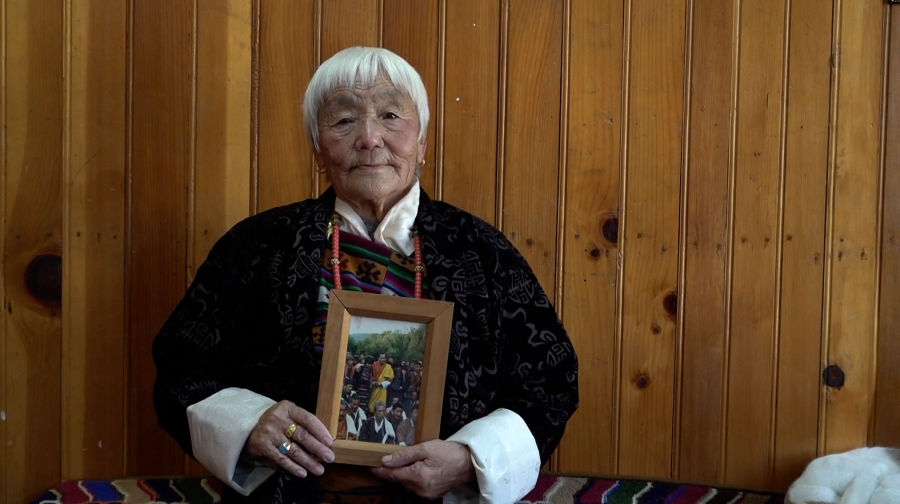 For many Bhutanese, a moment shared with His Majesty the Fourth Druk Gyalpo remains one of the most treasured moments of their lives. From remote villages to bustling towns, people across the country speak with deep reverence and emotion about their personal encounters with the Great Fourth. We bring you some of the many encounters that have left a lasting imprint on their hearts and a cherished memory of a King who touched lives with kindness and wisdom.
For many Bhutanese, a moment shared with His Majesty the Fourth Druk Gyalpo remains one of the most treasured moments of their lives. From remote villages to bustling towns, people across the country speak with deep reverence and emotion about their personal encounters with the Great Fourth. We bring you some of the many encounters that have left a lasting imprint on their hearts and a cherished memory of a King who touched lives with kindness and wisdom.
His Majesty the Fourth Druk Gyalpo Jigme Singye Wangchuck is remembered for walking among his people, listening to their concerns, sharing their meals, and inspiring generations.
Decades later, those brief encounters continue to shape lives.
Even at 81, Kinley Tshering from Paro vividly recalls the moment when His Majesty, during a photo session, asked her to stand beside him.
Kinley Tshering said, “Young women stood in the front row of the group photo, and I decided to stay at the back. His Majesty then pointed at me and commanded me to stand next to him for the picture, and then we took the picture.”
For Kelzang Phuntsho, the rare opportunity to take a photo with His Majesty in 2012 was unexpected.
Kelzang Phuntsho recalls, “During that time, His Majesty the Fourth Druk Gyalpo asked me if I was the owner of Kalapingka, expressed concern about my livelihood, and asked if my income was sufficient. I was deeply moved that such a great man cared about my well-being.”
Like them, countless others hold dear the memory of fleeting yet profoundly moving moments with His Majesty.
71-year-old Karchung says, “I stopped my vehicle to give way to His Majesty, but instead, he stopped and asked for my phone. I offered it to him. His Majesty told me to dial a number, spoke on the call, and handed it back to me. I was overwhelmed and felt so fortunate to have spoken with His Majesty.”
Karma Loday, a resident of Thimphu says, “The atmosphere itself was euphoric, being there with His Majesty and getting that opportunity to converse face-to-face. Quite humorously, His Majesty said to one of my friends that his name should probably be Zendom, mosquito, because he was thin and tall. His Majesty added that instead of his selling food to other people, he should start eating and put on some weight. And, of course, everyone smiled and laughed.”
“His Majesty asked me if I had any health problems since I was on a walk, and I told him I was exercising to stay fit. I ran after His Majesty, and when I caught up with him, I was out of breath. I remember His Majesty telling me to follow my own pace, or I might get a heart attack,” says Kaka, who now lives in Newcastle, Australia.
Tshering Choden, a resident of Perth, Australia says, “I had no hope of getting into another school, but I still tried. On our way, our vehicle met with His Majesty’s. I used to tell my parents that whenever I saw His Majesty, things always went well for me. And coincidentally, I got into the school I wanted. I am very happy and contented every time I see His Majesty.”
For Dasho Sherub Gyeltshen, translating His Majesty’s National Speech into Tsangla was a deeply moving experience.
He was gripped by disbelief and sorrow as His Majesty rehearsed the words announcing his abdication. The moment struck him with a profound pang of heartache, leaving him unable to hold back tears.
Dasho Sherub Gyeltshen says, “People came dressed in their finest attire, filled with excitement and joy for the celebration. But as soon as His Majesty announced his decision to abdicate the throne, the crowd fell silent. The atmosphere turned sombre, and many were left in shock and disbelief.”
He also recalls His Majesty’s thoughtfulness during a visit to Rigsum Goenpa.
“HRH Prince Jigyel Ugyen Wangchuck came to ask if I wished to accompany His Majesty to Rigsum Goenpa. I politely declined as I was unable to walk. His Majesty commanded a riding horse for me. I was at the end of the line and found that the whole entourage had waited for me to have tea. I was so embarrassed to ride on the horse while the Royal Entourage walked ahead.”
For those who were fortunate enough to meet him, the Great Fourth remains not just a monarch but a lasting symbol of care, wisdom, and humanity.
Deki Lhazom
Edited by Sangay Chezom







